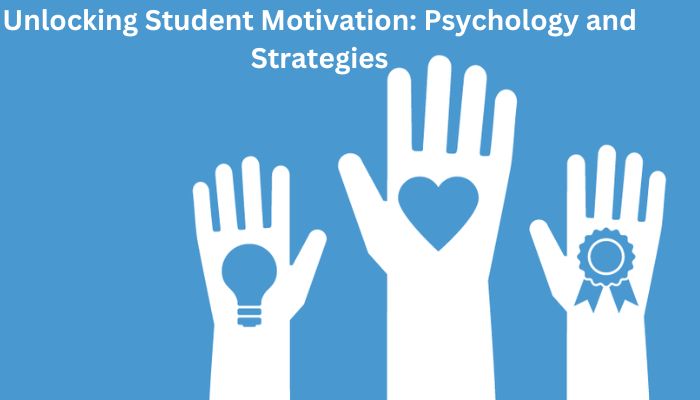Student motivation is a complex psychological phenomenon influenced by multiple factors. Delving into the psychology of student motivation can offer valuable insights for educators, parents, and policymakers, ultimately enhancing the learning experience.
The term “motivation” finds its roots in the Latin word “Movere,” meaning to keep moving forward. It represents the driving force behind our actions and behaviors. Motivation is particularly pivotal for students as it kindles their interest in learning and achieving their goals in life.
Motivation imparts a goal-oriented focus, a critical element for students to reach their learning objectives. Motivated students tend to exhibit longer attention spans, resilience, curiosity, a deep respect for their work, and a commitment to completing tasks punctually.
Motivation plays a vital role in education, with teachers and educational experts employing various theories to boost student motivation and facilitate better learning outcomes. Er Koneru Satyanarayana, Chancellor of KL Deemed to be University, shares valuable insights into the psychology of student motivation.
**Intrinsic Motivation in Education**
Intrinsic motivation reflects an inherent eagerness to learn. Students who are intrinsically motivated tend to be more effective and efficient learners in the classroom. They do not require external rewards or sanctions to kindle their learning process. Their innate curiosity serves as the driving force behind their desire to understand and learn quickly. Intrinsic motivation frequently emerges as a powerful precursor of academic achievement. Intrinsically motivated students are naturally curious, proactive, and persistent in their pursuit of knowledge.
**Extrinsic Motivation**
Educators often employ extrinsic motivation strategies to cultivate intrinsic motivation for learning. Extrinsic motivation entails undertaking a task to attain something external to the task itself. It occurs when students are motivated to learn for the sake of earning rewards or avoiding punishment. Extrinsic motivation encompasses factors like grades, praise, or tangible incentives. However, it’s worth noting that extrinsic motivation, in the absence of intrinsic motivation, may result in students losing interest in learning or becoming overly reliant on external stimuli alone. Therefore, instilling a sense of importance in learning can yield the same effects as intrinsic motivation.
**Inculcating a Growth Mindset**
Education is a continual learning journey rather than a linear process. Students who embrace a growth mindset continually refine their thinking and view learning challenges as opportunities for growth and excellence. In contrast, students with fixed mindsets tend to fixate on failures and may crumble in the face of adversity. Educators play a crucial role in helping students develop a growth mindset. Praising students for their efforts, hard work, focus, and dedication is a key aspect of nurturing a growth mindset.
**Creating a Healthy Learning Environment**
Establishing a healthy learning environment and providing high-quality education significantly impacts student motivation. Educational institutions should have robust behavior policies that promote students’ well-being. Educators need to equip students with social skills to foster love, care, support, empathy, and strong peer-to-peer relationships. Implementing routines in the classroom sets expectations and allows students to engage readily in class discussions and activities, reducing anxiety by creating a sense of certainty.
**Acknowledging Student Efforts**
Any form of learning requires effort, skills, and focus. It is essential for educators to recognize and appreciate students’ efforts where deserved. Acknowledgment boosts students’ morale, self-esteem, and self-worth, making them feel proficient and eager to tackle new learning challenges. Appreciation and recognition are potent tools for enhancing a student’s confidence and sense of achievement.
In summary, motivation is a fundamental driver for student academic performance. Cultivating a growth mindset is an effective way to inspire students, enabling them to navigate challenges and transform them into opportunities for success. Building a supportive learning environment and acknowledging students’ efforts are crucial steps in fostering motivation.

